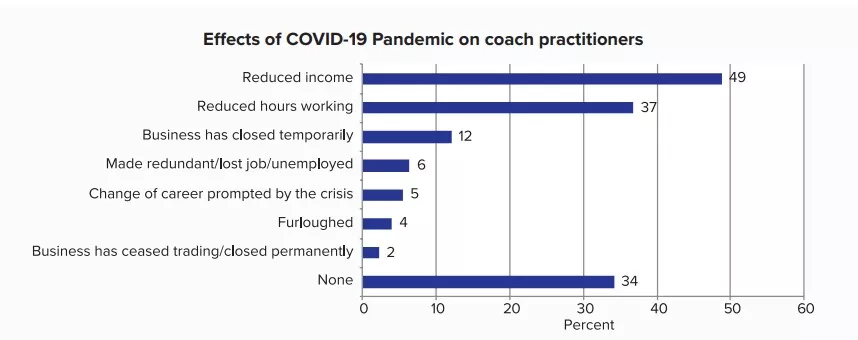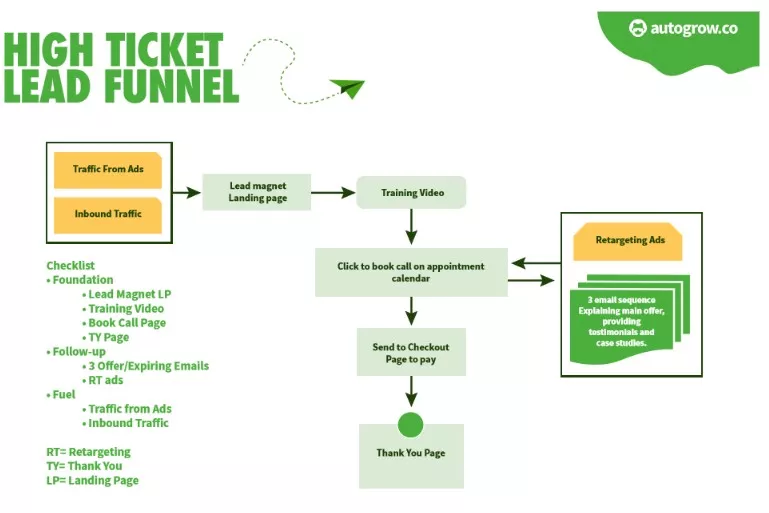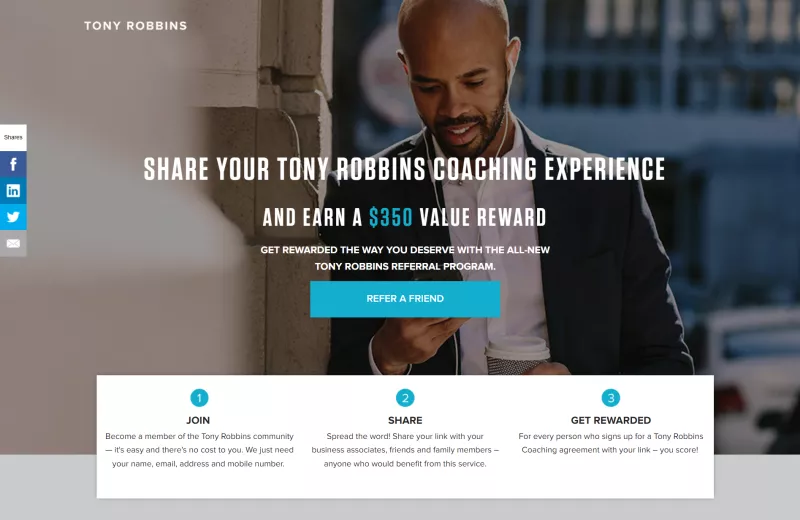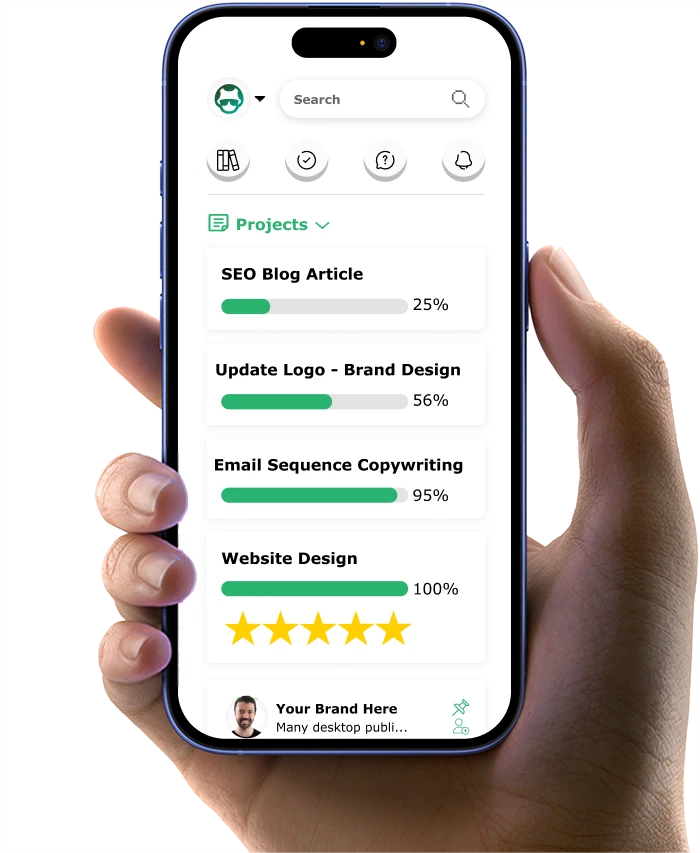7 Must-Have Sales Strategies To Grow Your Coaching Client Roster

When you’re a coach or a consultant, you’re pretty much all alone when it comes to closing deals with new clients.
After all, it’s not like you have a full-fledged sales team at your command.
So if you really want your business to take off, you’ll need to be more than just a coach … you need to be a master of persuasion too.
Fortunately, there are plenty of sales strategies you can apply to your own client-generating efforts.
And today, that’s precisely what I want to share with you.
After reading this article, you’ll come away with:
- A better understanding of how coaches like yourself can become stellar salespeople and why your business depends on your skills.
- 7 effective sales strategies for coaching businesses to convince prospects to become new clients.
- The ability to be fully equipped and prepared before you talk to a prospect — that way, you already know what they’re going to say.
If you think you should have more clients than you have, let’s start finding some sales strategies that you haven’t tried yet…
Want to delegate all your marketing and funnel work done—without the headaches of hiring? Download our free guide: 33 Marketing Projects You Can Delegate to Growbo and discover how to save 100+ hours a month, grow faster, and scale without the overhead.
Coaches as Salespeople
Coaching is quite unique when it comes to sales strategies.
I mean, at the end of the day, sales is sales, but there’s just naturally a much more human element to how you try to get more clients.
Because you’re essentially selling yourself.
In traditional sales, the salesperson can be anyone.
All you gotta do is talk about how great your product or service is.
And it’s not like the prospect cares so much about the salesperson. Once they make a purchase, they’ll probably never talk to the salesperson ever again except for maybe some customer service in the onboarding process.
But as a coach, it’s up-close and personal.
Well, maybe not quite as “up-close” these days.
During the COVID-19 pandemic, coaches and their clients increased their use of audio-video by 83%, according to The International Coaching Federation.
My guess is, remote coaching solutions will remain pretty popular indefinitely as people realize how much more convenient it can be.
With coaching being so personal, you can’t just outsource your sales.
Besides, why would you anyway?
You want to make sure that you understand who your clients are on a deeper level.
That way, you can deliver the best results imaginable.
Luckily for you, everyone already appreciates the value that coaches like you bring.
In fact, 96% of businesses and individuals say they’d do repeat business with their coaches, according to research from IPEC Coaching.

So here’s the thing … If you’re going to be successful selling your services, you need to become comfortable with direct sales.
The first thing that separates successful salespeople from the pack is the sales process they use.
There’s no one single process that works for everyone. It depends on factors like your industry, your target audience, your own skills, etc.
If you don’t follow a sales process, you’re going to be lost.
Even worse, you won’t close as many client deals as you should be.
See, an effective sales process is basically the formula that you’ll use over and over again.
That’s why, according to HubSpot, 6 in 10 salespeople won’t change their process once they figure out what works.
Look at your sales process as your map for getting where you want to go — which is new clients.
But the foundation of your process lies with the sales strategies that you use.
With that, let’s start with the first one on the list …
Sales Strategy for Coaches #1: Understand Your Prospect’s Needs
The first sales strategy for your coaching business is all about figuring out what exactly your prospect needs.
To do this, you have to ask the right questions and listen very carefully to their answers.
Kind of sounds like common sense, right? Well, sales newbies are often blabber mouths. They ramble on, trying desperately to convince their prospects that they should do business with them.
But the key here is to just talk to prospects like you would with anyone.
That’s by listening.
And if you’re one of the thousands of business coaches in the $11.2 billion industry, then you probably already know this rapport-building strategy.

For the rest of you who aren’t business coaches, you need to really get in the habit of just being quiet.
Because as you sit there during a consultation call, you’ll absorb valuable information on the best ways to follow up with a prospect, all while you let them “vent.”
Now, who do people usually vent to? … Friends.
So as your prospect feels more comfortable discussing their concerns with you, while you offer thoughtful responses, they’re one step closer to doing business with you.
Sales Strategy for Coaches #2: Establish Yourself as a Thought Leader
If you want to convert sales leads for your coaching business, then you have to build trust with them.
And when it comes to sales, there’s no faster way to earn someone’s trust than by becoming an expert in their eyes.
Because nobody wants advice from someone that doesn’t seem credible.
This sales strategy works better if you’re an expert in a specific niche.
For example, business coach Don Markland offers a free book on his website that explains how he generates six-figure companies.

Although this is a lead generation tactic, Don could also send this book via email to his sales prospects that he’s in talks with.
That way, if they don’t know how great of a coach he is already, they’ll see his expertise shine through in the book.
Sales Strategy for Coaches #3: Prepare for Common Objections
When you communicate with a prospect, you have some really valuable information at your fingertips.
It could be information left in a message on your website.
It could be from an email.
It could be from your sales calls.
Wherever it is, the prospect is opening up to you with their problems.
And yeah, you might already have a target audience in mind and have a good idea for what their main problems might be. But you could take your sales game to the next level if you keep track of the specifics.
Over time, you’ll start to notice some overlaps in the prospect pain points presented to you.
You’ll also get a feel for what kind of objections you should be ready to address.
As you pick up on recurring themes, take note of it somewhere. In Google Docs, Word, or even on a piece of paper … it doesn’t matter. As long as you have a file that keeps track of common talking points from your consultation calls.
And as you familiarize yourself with what your prospects care about the most, you’ll be better prepared to have responses in your holster.
Then, you’ll be ready to reassure them.
Sales Strategy for Coaches #4: Qualify Your Leads
The fact is, most of your leads won’t be a good fit for your coaching business.
And that’s okay.
In fact, even the top 10th percentile of lead conversion rates are hovering around 11%-12%, according to Databox.
So if you were a lead conversion king, you could still expect 9 out of 10 of your leads to never become clients.

With you being so busy each day, you have to cut your losses and focus your sales efforts on leads that show the most interest.
And that’s where qualifying your leads comes in handy.
To qualify your leads, a good idea is to have them fill out a quick questionnaire.
That way, you can decide if the lead is a good match for you.
Plus, if someone takes the time to fill out a quick questionnaire, then they’re definitely ready for the next step.
Besides that, you’ll also be equipped with enough information to help you make a better pitch if and when it’s time for the next step.
And some angles you can take with pre-qualifying a lead are:
- What kind of budget does the prospect have?
- Is it even the right time for the individual to use your services?
- Are they the final decision maker?
- Will you be able to solve their problem?
- How soon do your services need to be provided?
You know, another way to gauge someone’s interest is by sharing some kind of resource with them and checking to see if they engaged with it in any way.
This could be a white paper, a case study, a link to your FAQs, etc. Just like with your questionnaire, you’re looking to see who’s the most serious about doing business with you.

Sales Strategy for Coaches #5: Create a Sales Funnel
A sales funnel maps out all the touchpoints that your prospective clients will engage with.
With it, you can visualize how the client journey will unfold and you can identify where you may have bottlenecks in your marketing and sales process.
Remember, humans process visual information 60,000 times faster than text, according to 3M Corporations.
And if you’ve read Matt’s article on how to create your own coaching sales funnel, you’ll know that there are six key steps to take:
- Lead Magnet: Offer some type of free content to website visitors in exchange for their email address.
- Retargeting Ads: When users don’t convert from your lead magnet, you can send retargeting ads that are relevant to the content they were looking at.
- Congrats Page: Once someone opts in with your offer, direct them to a page where you have a short video of yourself congratulating them and where you nudge them towards the next step via follow-up emails.
- Confirmation Page: Use a widget like Calendly to let the lead schedule a call with you and ask them to answer some pre-call questions.
- Thank You for Booking Page: Simply thank users for booking a call with you to show respect.
- Email Drip Follow-Ups: If someone left your website before confirming a call with you, send an automated email sequence where you showcase your value and authority, all while adding a bit of a sense of urgency.
To get an idea for what your coating sales funnel might look like, check out this one below of a high-ticket lead funnel.

Want a bulletproof sales funnel that can sell your professional coaching services and convert leads like crazy? Click here to download our proven-to-work Coaching Funnel Template for FREE now.
Sales Strategy for Coaches #6: Actually Ask for the Sale
If you’re afraid of rejection, you’re not alone.
It’s one of the most innate instincts we have. No one wants to feel like they aren’t good enough.
Because of this fear, a lot of coaches simply never even ask for the sale.
However, that’s a mistake.
If you never ask, then you risk losing clients.
But people who make sales their profession deal with rejection all day long.
Actually, my cousin even told me how he gets cursed out on a daily basis since he makes a lot of cold calls.
Again, unless you’re a business coach or consultant, maybe you’re afraid to get aggressive.
Really, you need to expect to be turned down now and then.
And I’m not saying you need to ask for the sale on your first touchpoint with a prospect.
However, at some point, you need to try and close the deal.
In the end, it’s better to ask than not to ask because you don’t have anything to lose.
Sales Strategy for Coaches #7: Use a Referral Program
Referrals are like social proof on steroids.
And they can be your best source of leads for your coaching or consulting business.
According to a Nielsen study, 84% of consumers trust recommendations from people they know.
That’s why it’s important to build up an epic list of raving fans who are willing to recommend you.
That way, when someone needs your services, they’ll recommend you to their friends and followers who need it too.
But in order for your coaching referral program to really work at maximum potential, you’ll need to offer an incentive to your clients.
For example, look at life and business coach Tony Robbins.
He rewards his clients with $350 for every person they refer.

But besides your website, you’ll also need to promote your referral program through email, much like we do with our affiliate program.

Conclusion
Want to delegate all your marketing and funnel work done—without the headaches of hiring? Download our free guide: 33 Marketing Projects You Can Delegate to Growbo and discover how to save 100+ hours a month, grow faster, and scale without the overhead.
Running your coaching business is a lot of work.
And when you just aren’t getting as many clients as you should be, you’re going to feel discouraged.
One possible reason for this shortcoming could be your sales skills.
Because if you aren’t familiar with effective sales strategies, then you’re leaving a lot on the table.
As you start using the strategies laid out in this article, you’re going to start feeling overwhelmed with how much your client roster grows.
However, with more time spent on working with your clients, you may have less time for marketing.
And as you may know, marketing is the precursor to sales.
I mean, without an outstanding marketing mix, you’re not going to have a steady flow of leads to begin with.
And if you need help in that regard, Growbo is the place to start.
We have a global team of vetted professionals for every aspect of digital marketing you can think of … from copywriters to your very own project manager, we’ve got it all.
So which of these sales strategies are you going to start using at your coaching business?
Let me know in the comments below.
Keep Growin’, stay focused.














